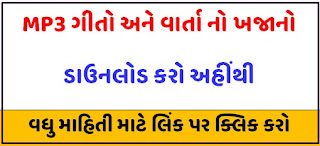Latest Gujarati MP3 Prathna ,DeshBhakti Songs ,Balgeet,Swagat Geet Songs for Schools
 JOIN US ON WHATSAPP
Join Now
JOIN US ON WHATSAPP
Join Now Latest Gujarati MP3 Prathna ,DeshBhakti Songs ,Balgeet,Swagat Geet Songs for Schools
Republic Day is a national holiday in India. It honours the date on which the Constitution of India came into effect on 26 January 1950 replacing the Government of India Act (1935) as the governing document of India and thus, turning the nation into a newly formed republic.
The Constitution was adopted by the Indian Constituent Assembly on 26 November 1949 and came into effect on 26 January 1950 with a democratic government system, completing the country's transition towards becoming an independent republic. 26 January was chosen as the date for Republic day because it was on this day in 1929 when the Declaration of Indian Independence (Purna Swaraj) was proclaimed by the Indian National Congress as opposed to the Dominion status offered by the British Regime.
India achieved independence from British Raj on 15 August 1947 following the Indian independence movement. The independence came through the Indian Independence Act 1947 (10 & 11 Geo 6 c 30), an Act of the Parliament of the United Kingdom that partitioned British India into the two new independent Dominions of the British Commonwealth (later Commonwealth of Nations).[2] India obtained its independence on 15 August 1947 as a constitutional monarchy with George VI as head of state and the Earl Mountbatten as governor-general. The country, though, did not yet have a permanent constitution; instead its laws were based on the modified colonial Government of India Act 1935. On 29 August 1947, a resolution was moved for the appointment of Drafting Committee, which was appointed to draft a permanent constitution, with Dr B R Ambedkar as chairman.hile India's Independence Day celebrates its freedom from British Rule, the Republic Day celebrates the coming into force of its constitution.
A draft constitution was prepared by the committee and submitted to the Constituent Assembly on 4 November 1947.[3] The Assembly met, in sessions open to public, for 166 days, spread over a period of two years, 11 months and 18 days before adopting the Constitution. After many deliberations and some modifications, the 308 members of the Assembly signed two hand-written copies of the document (one each in Hindi and English) on 24 January 1950. Two days later which was on 26 January 1950, it came into effect throughout the whole nation. On that day, Dr. Rajendra Prasad's began his first term of office as President of the Indian Union. The Constituent Assembly became the Parliament of India under the transitional provisions of the new Constitution.
Important Links:
Download MP3 Files
Post a Comment